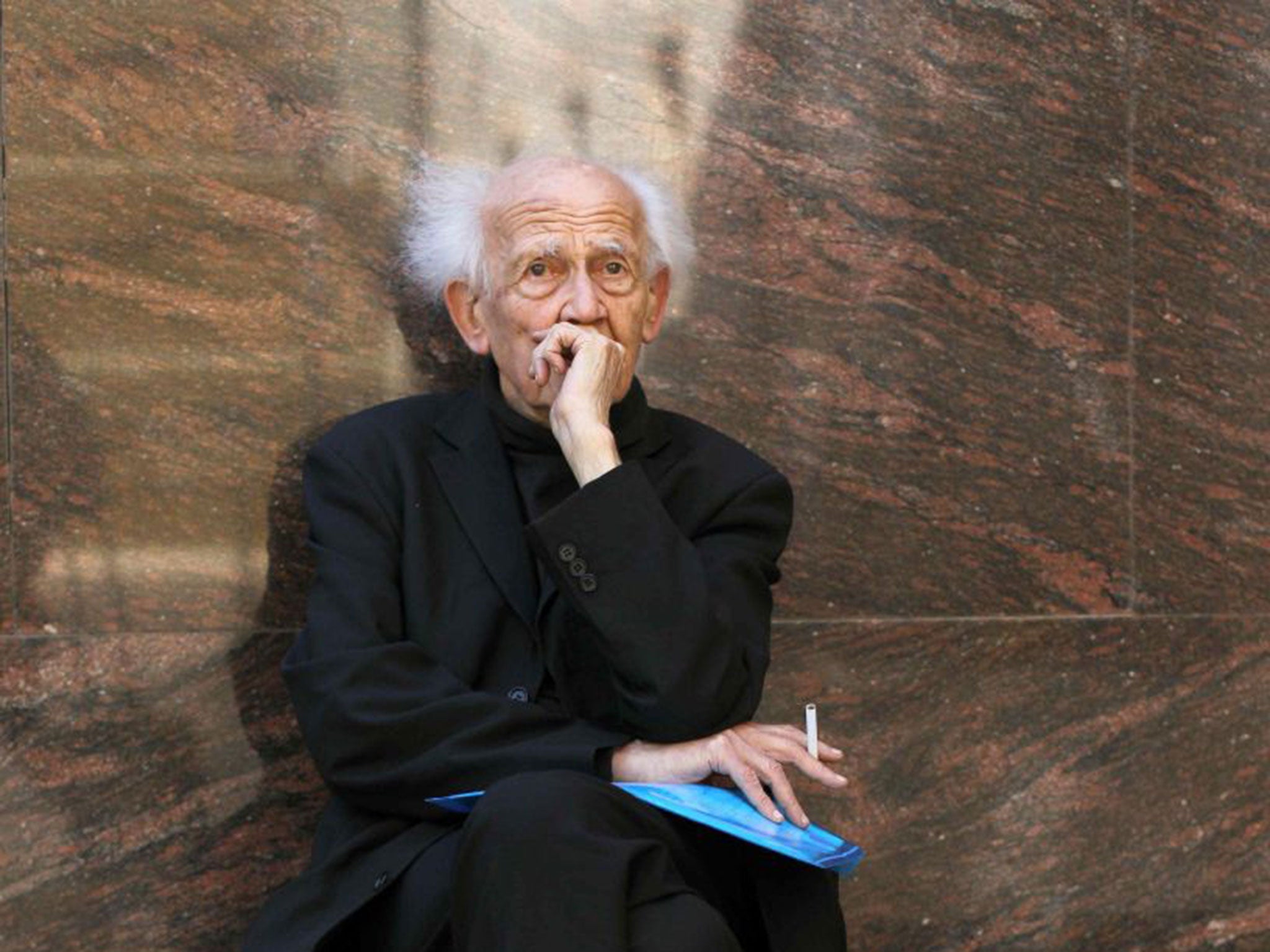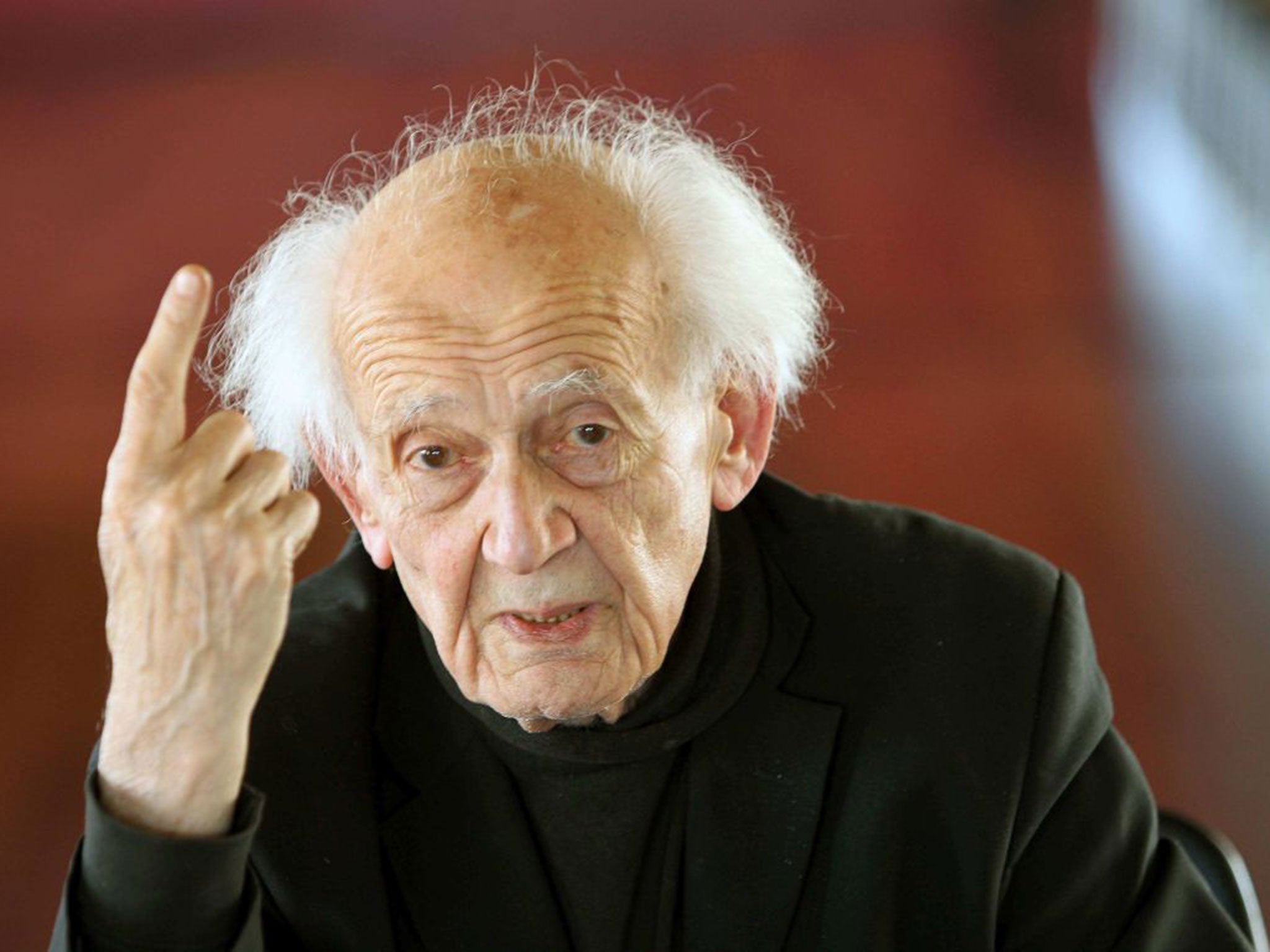Zygmunt Bauman: World's leading sociologist accused of copying his own work
The 89-year-old author is alleged to have 'inappropriately reproduced' more than 90,000 words in 29 books published between 1987 and 2014

The world’s “greatest living sociologist” has been accused by academics of committing serial “self-plagiarism” that involved recycling his previous writings and “passing off his old scholarship as new for around 25 years”.
Professor Zygmunt Bauman, the 89-year-old author of Modernity and the Holocaust, is alleged to have “inappropriately reproduced” more than 90,000 words in 29 books published between 1987 and 2014.
Professor Bauman, who has an institute named after him at Leeds University, was also accused of occasionally “lifting” from Wikipedia, and in the process repeating the online encyclopedia’s errors.
In what could be the opening salvo of a bruising academic feud, Peter Walsh, a sociology PhD student at Cambridge University, and David Lehmann, emeritus reader in social science at Cambridge, acknowledge the severity of their claims by writing: “Bauman is described by his intellectual peers as the ‘world’s greatest living sociologist’.”
But in their article ‘Problematic Elements in the Scholarship of Zygmunt Bauman’, published on the website Academia.edu, they turn their attention to the retired Leeds University professor’s 2013 work Does the Richness of the Few Benefit Us All?, which disputed the idea of a “trickle-down economy”.

They allege that around a quarter of the book “appeared to have been reproduced exactly or near-exactly from Bauman’s earlier published work and websites including Wikipedia”.
They accuse him of lifting text from a Wikipedia article on steady-state economy, omitting proper citation but repeating “a partially made-up quotation of Mill and an incorrect reference to the work of [John Maynard] Keynes”.
After examining 28 other books, they estimate 90,000 of his words have been “reproduced without acknowledgement from Wikipedia, other websites and most especially Bauman’s previous work”.
They acknowledge that some regard “self-plagiarism” as harmless and believe that authors can use their own material as they wish.
But Mr Walsh and Dr Lehmann insist: “By failing to indicate that substantial parts of his newly published works are not in fact new… Bauman misleads his readers.”
Polity, which publishes many of Professor Bauman’s books, refused to comment, and Professor Bauman declined to comment to Times Higher Education, which first reported the allegations against him.
Responding to preliminary claims by Mr Walsh last year, however, the professor claimed to “pity” the doctoral student. In 60-odd years, he told Times Higher Education, he had ”never once failed to acknowledge the authorship of the ideas or concepts that I deployed”. He said he had failed “to spot the influence of the obedience to technical procedural rules of quotations on the quality (reliability, effectiveness and social importance) of scholarship: the two issues that Mr Walsh obviously confuses.”
Mr Walsh, the lead author of the article, said: “I have been a great admirer of his ever since I was an undergraduate.” But he insisted: “Age and reputation should not exempt anyone from the normal standards of academic scholarship.”
Join our commenting forum
Join thought-provoking conversations, follow other Independent readers and see their replies
Comments